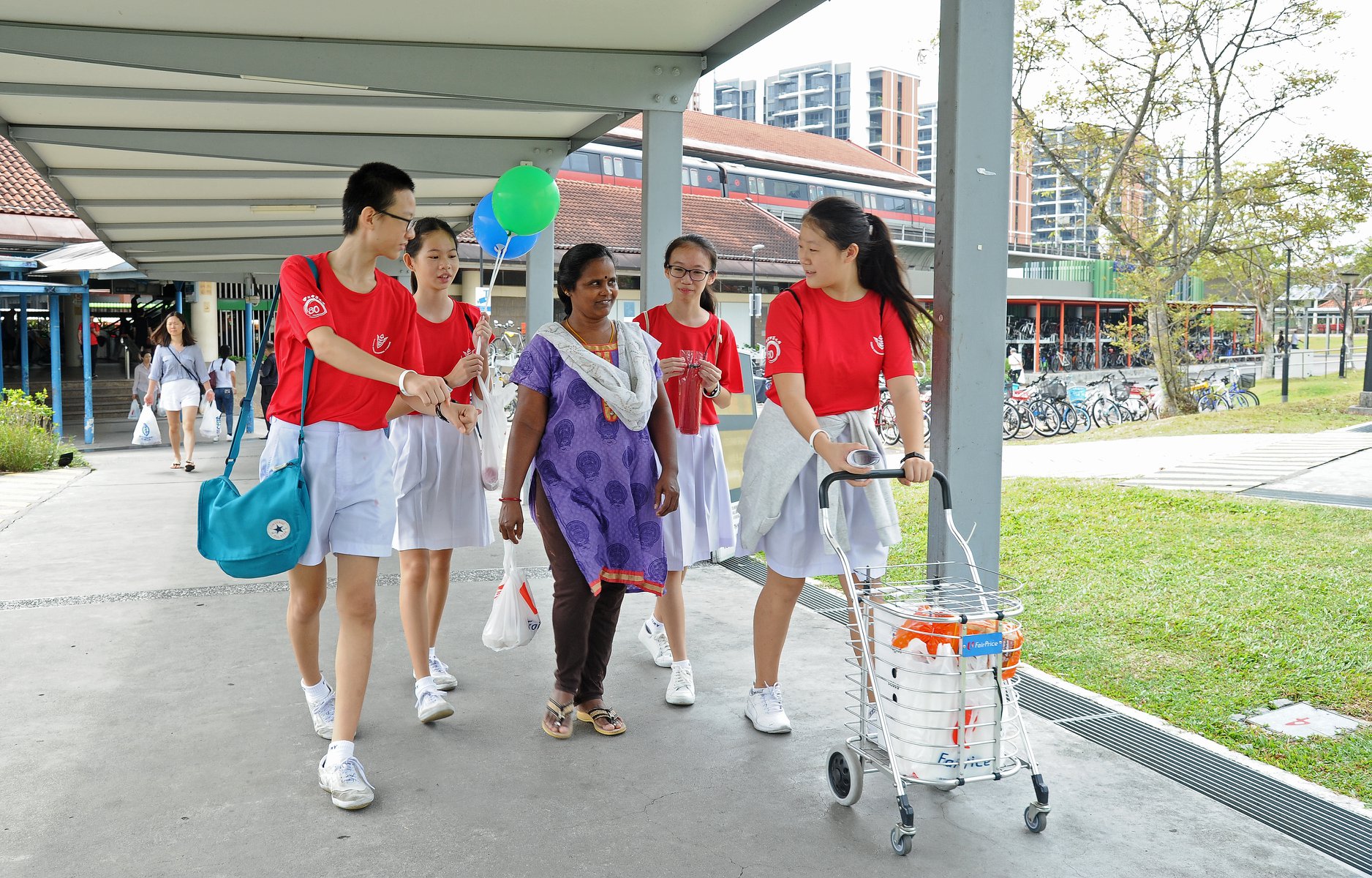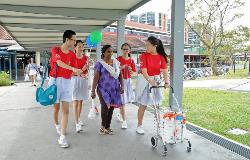Government officials will NEVER ask you to transfer money or disclose bank log-in details over a phone call. Call the 24/7 ScamShield helpline at 1799 if you are unsure if it is a scam.
CARE by Chung Cheng: Students share why it's still important to offer assistance despite potential rejection

Students share why it's still important to offer assistance despite potential rejection
What is CARE by Chung Cheng?
Some 1,200 students from Chung Cheng High School (Yishun) went around the Yishun estate to help elderly commuters at MRT stations and bus interchanges on 6 March.
"It has been an amazing day! I really loved helping the elders today. Learning
beyond classroom is such as interesting activity, and I feel blessed to see the happy faces of the elderly," said Xanthia, a Secondary 1 student who was stationed at Khatib MRT Station.
What does it mean to offer assistance?
Students offered to help elderly commuters at their pain points, which were narrowed down to carrying heavy items and supporting them in walking.
Why do students care?
This is activity is an initiative by the students themselves, who noticed in the Yishun community that there can be more help offered to elderly during their travel by fellow commuters.
The students care for the well-being of the elderly as
they find themselves able and willing to help these elderly commuters, who may not be as fit or mobile as before when they were around their age.
Furthermore, the students have highlighted that it was a humbling experience placing themselves
in the shoes of the elderly, knowing that they too will one day depend on the willingness to help of the next generations to come.
"I think that it's important to have caring commuters as one day we will all be old and will feel the same
things as the elderly, such as pain when walking and difficulty in carrying heavy items," said Joanne, a secondary 2 student who was stationed at Yishun MRT Station.
"Nobody would like to be alone when they really need help, so if more
students/people start to help more elderly, there will be a stronger caring commuting culture in the future and it will help bear the burden of the elderly."
Rejected, but not discouraged
Despite facing rejection by some elderly who assured the students that they are fine on their own, the students remain positive and understood that there could be many reasons why the elderly would prefer not to be assisted.
This understanding
highlights that they have gained a deeper understanding and better sensitivity to the needs of the elderly, preparing them for possible scenarios and having the discernment on when and how to offer assistance.
"Our teachers have emphasised
to us that the most important takeaway of the exercise was not to get the job done, but rather, for us to gain a genuine willingness to help someone in need," said Marshall, a student leader in Secondary 4.
